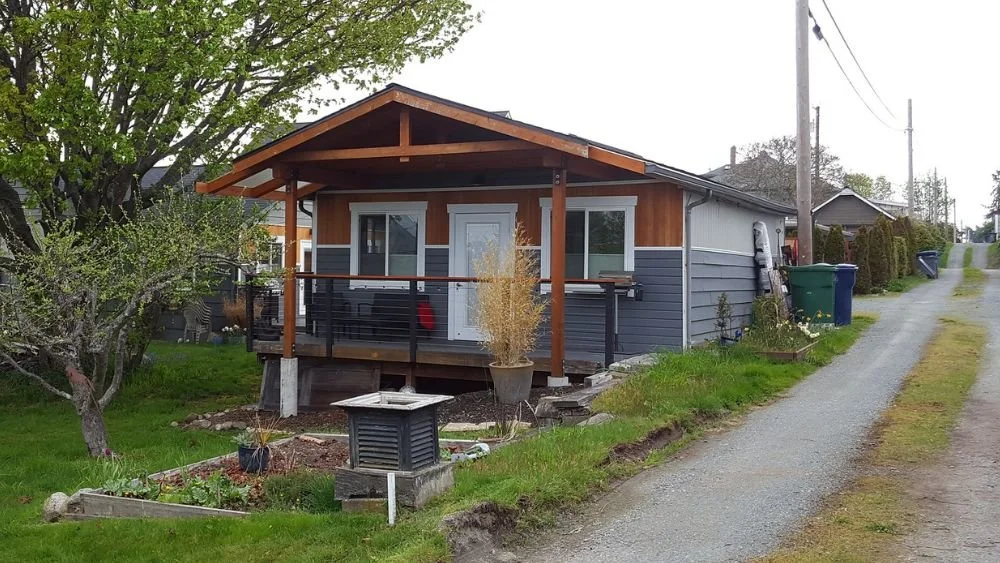A new ordinance removes costly parking requirements across most of Chicago, clearing the way for more affordable housing and business development.
Read MoreOn Wednesday, the Dallas City Council passed sweeping parking reforms, making it easier to open businesses and build housing in the city.
Read MoreMany city officials are struggling to provide affordable housing for their communities. In Denver, a group of city officials, community leaders and nonprofit organizations decided to try something different.
Read MoreHere’s how advocates in Omaha, Nebraska, got their Department of Public Works to complete a quick-build street safety project so fast that “it felt like waving a magic wand.” (Hint: Find out if your community has a business improvement district, stat.)
Read MoreBuild a bipartisan coalition. Launch a pilot project. Speak to the core issues facing your community. That’s how Spokane, Washington, was able to eliminate costly parking mandates. Here's the full story.
Read MoreAfter a Crash Analysis Studio was conducted in Rochester, New York, the city quickly established safer street design standards. Now, the county has created a first-in-state Community Traffic Safety Team to proactively address citizens’ concerns regarding street safety.
Read MoreWe’ve assembled a guide to three towns and cities of varying sizes that have recently revised their parking regulations. That way, when you decide to pursue parking reform in your own community, you can use them as examples of how parking reform strengthens cities.
Read MoreSince enacting broad housing reforms in 2019, Durham, North Carolina, has been experiencing an explosion of missing-middle housing and housing affordability. Here are the main reforms the city enacted and how they're helping it fight the housing crisis.
Read MoreEveryone has an entry point on their journey to taking action for their place. For Bernice Radle, it was witnessing the steady depopulation of Buffalo, NY, and seeing a landscape of unused, unloved buildings headed for the wrecking ball.
Read MoreLike so many places, Muskegon, MI, has a shortage of housing and a surplus of vacant lots. That’s why it’s enacted a program that allows it to redevelop those lots into affordable housing—at a low risk to the city.
Read MoreLike many U.S. towns, Maumee, OH, has a state highway that cuts through their Uptown. For decades, it’s been known as a dangerous road…but no longer: the city is taking back its streets and making them places for people, not cars.
Read MoreNorfolk, NE, knows that people are the indicator species of a successful place, and it’s doing all it can to make its public spaces friendly to its people.
Read MoreIn 2015, Edmonton, a city of 1 million situated in the Canadian Prairies of Alberta, was the first city in the country to adopt Vision Zero—and they’ve taken that adoption seriously.
Read MoreLocal activists in Selma, NC, started small, but they’ve grown into a coalition of citizens, civic groups, and city leaders striving to improve housing, transportation, and the local economy.
Read MoreIn Capitola, California, residents erupted in protest after Debra Towne, a beloved local senior, was hit and killed walking across a dangerous stroad. And unlike in so many other places, the city actually responded.
Read MoreWhen Chattanooga’s Local Conversation learned of a crash that took the lives of a mother and child and severely injured the father, the group channeled their mourning into mobilization.
Read MoreIn what’s anticipated to be a landslide, the people of Los Angeles just voted in favor of walking, biking, and transit.
Read MoreTony Jordan of the Parking Reform Network and Chris Meyer, legislative assistant to Senator Omar Fateh, talk all things parking reform on this week’s episode of the Strong Towns Podcast.
Read MoreLike so many other places, the city of Kalamazoo, MI, has been facing a cascade of housing challenges. Here’s how they’re tackling them using pre-approved housing plans.
Read MoreSearching for a place where people work together and things actually get done? Look no further than Jasper, IN, where a gorgeous downtown renovation serves as an example of a place that’s “built by many hands.”
Read More



















